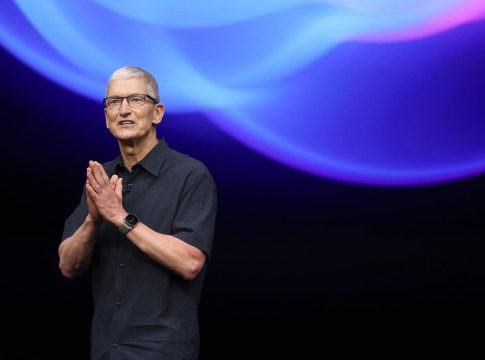Apple’s AI Strategy: Navigating Challenges and Opportunities
Introduction to Apple’s AI Dilemma
As the tech world rapidly evolves with advancements in artificial intelligence (AI), Apple finds itself at a crossroads. Unlike its competitors, who have made substantial strides in generative AI, Apple is still navigating challenges in this burgeoning field. Recent developments highlighted at the Worldwide Developers Conference (WWDC) reveal Apple’s cautious approach, as they aim to retain credibility while strategizing for future AI capabilities.
Lagging Behind Competitors
Apple’s Chief Executive, Tim Cook, recently acknowledged that Apple has not kept pace with the AI revolution. The competition, particularly companies like OpenAI, has showcased models that claim impressive reasoning capabilities. However, Apple researchers argue that many of these claims are overly optimistic and merely reflect an “illusion of thinking.” This skepticism is pivotal; it underlines how Apple intends to approach AI innovations with caution rather than haste.
Acquisition as a Strategy
To regain its footing, Apple appears to be considering acquisition as a viable route for advancement. Reports suggest that Apple is eyeing a potential acquisition of Perplexity AI, a startup specializing in conversational and search AI tools. Valued at approximately $14 billion, Perplexity could provide Apple with much-needed resources to enhance its AI offerings. Given Apple’s track record of integrating acquisitions smoothly into its ecosystem, this move could signify a strategic pivot in its AI journey.
Building Foundations in AI Research
While contemplating acquisitions, Apple is also committed to building a solid foundation in AI research. The company has published papers critiquing prevailing AI capabilities, aiming to establish a more rigorous understanding of what AI can realistically achieve. This methodical approach might seem slow, but it could ultimately lead to more sustainable and innovative AI solutions.
The Impact of Delayed AI Integration
The timeline for any significant AI developments from Apple continues to extend, with practical implementations projected for 2026 or later. This delay could have broader implications as AI becomes increasingly integrated into various industries. Everyday users and businesses are becoming accustomed to AI-enhanced experiences. If Apple is unable to deliver comparable features, it risks losing market share and consumer trust.
Conclusion: A Path Forward
As Apple navigates the complexities of AI, it faces both daunting challenges and promising opportunities. By potentially acquiring startups like Perplexity and prioritizing rigorous research over rushed deployment, Apple aims to carve out a distinctive niche in the AI landscape. In a field that is evolving at breakneck speed, Apple’s measured and thoughtful approach could ultimately serve to reinforce its position as a leader in technology.
Looking Ahead
With the AI race only set to intensify, all eyes will remain on Apple. Will it successfully integrate groundbreaking features into its products, or will it lag further behind? As with many tech advancements, the future holds both mystery and promise, and how Apple responds will be pivotal for its next chapter in the AI revolution.

Writes about personal finance, side hustles, gadgets, and tech innovation.
Bio: Priya specializes in making complex financial and tech topics easy to digest, with experience in fintech and consumer reviews.

